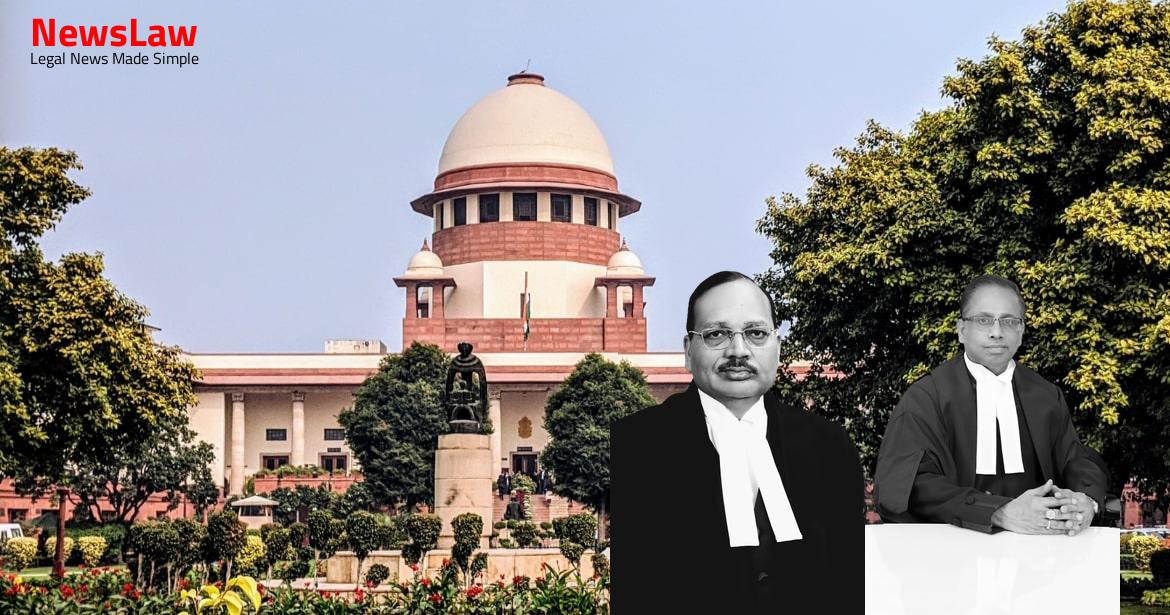In a significant ruling by the Supreme Court of India, the conviction of a habitual offender has been overturned, leading to the acquittal of the accused. The case highlights the crucial role of due process and the burden of proof in criminal trials. This judgement underscores the importance of establishing guilt beyond a reasonable doubt, ensuring justice is served fairly. Stay tuned for more insights on this legal milestone.#SupremeCourt #LegalJustice #NDPSAct #HabitualOffender
Facts
- The appellant was carrying a plastic flour packet in his right hand which led to the recovery of 10 kgs of opium.
- No independent witness from the locality was included in the investigation; all witnesses were police officials.
- Appellant’s counsel alleged false implication, stating he was apprehended as he stepped out of his house.
- Lack of explanation for the absence of any independent witness in a residential locality raises concerns.
- Non-compliance with Section 50 of the NDPS Act
- Failure of prosecution to prove sample consistency
Also Read: Land Dispute Resolution: Supreme Court Ruling on Specific Performance
Arguments
- The appellant has two previous convictions under the NDPS Act
- The State’s counsel argues that the appellant is a habitual offender
- The State is presenting the appellant’s criminal history to establish his status as a habitual offender
Also Read: Landmark Judgment: Setting Precedent for Contractual Compliance
Analysis
- High Court did not address the lack of independent witnesses in a rural residential locality.
- Trial Court confirmed the sample in court matched the one seized from the appellant.
- NDPS Act imposes a reverse burden of proof, but it is rebuttable.
- Stringent provisions like Section 37 and minimum ten-year sentence do not negate the prosecution’s obligation to prove a case beyond reasonable doubt.
- The Trial Court criticized the poor condition of malkhanas in Uttar Pradesh.
- Failure to conclusively link the seized sample to the appellant poses a challenge to the prosecution’s case.
- The plastic packet and ink quality used for identification were questioned, weakening the prosecution’s stance.
- The lack of connection between the seized sample and the appellant’s case parallels the failure to produce the sample itself.
- The absence of any refusal by potential witnesses was noted during the seizure.
- High Court deemed the police witness’s deposition regarding the search and seizure as sufficient compliance with Section 50 of the NDPS Act.
- The accused raised concerns about the unestablished link between the sample presented in court and the seizure from him.
- Absence of production of seized substance as material exhibit raises doubt on connection with forensic report in narcotic cases.
- Section 35(2) mandates proof beyond reasonable doubt, not mere probability.
- Burden of proof does not automatically shift to accused upon allegation; prosecution must still establish and prove facts.
- Correlation between seized sample and tested substance is essential for establishing guilt.
- Production of seized materials as material objects is crucial in NDPS Act cases; failure to produce without explanation weakens prosecution’s case.
- Earlier conviction is relevant for sentencing, not for automatic conviction.
- Presumption of innocence until proven guilty is a general principle in criminal jurisprudence.
- The appellant’s conviction cannot be upheld based on the evidence presented.
- The prosecution failed to prove the guilt of the appellant beyond a reasonable doubt.
- The lack of conclusive evidence creates reasonable doubt about the appellant’s involvement in the crime.
- In the absence of concrete proof, the appellant cannot be held criminally responsible.
- Therefore, the conviction of the appellant is overturned.
Decision
- Conviction by the Trial Court and upheld by the High Court set aside
- Appeal allowed
- Appellant acquitted
- Appellant directed to be released forthwith unless wanted in any other case
Case Title: VIJAY PANDEY Vs. THE STATE OF UTTAR PRADESH
Case Number: Crl.A. No.-001143-001143 / 2019



